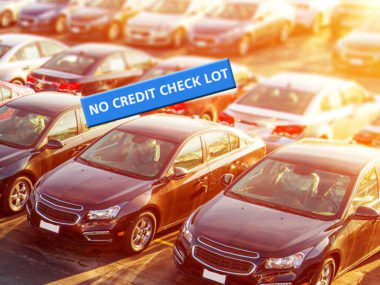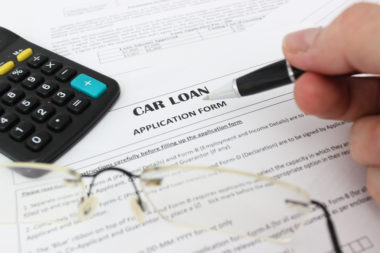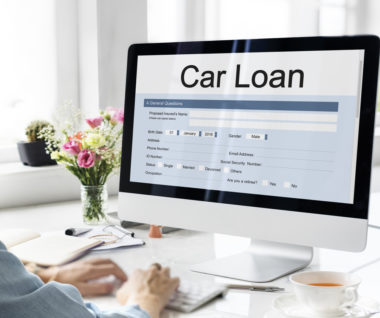If you have a credit score of 620 or lower, most lenders won’t approve you for a car or truck lease. A lease can deliver many benefits over purchasing, including lower monthly payments, access to more valuable vehicles, and shorter terms.
You can choose to buy the car at the end of your lease or walk away and lease another make or model in many instances.
With these details in mind, it’s crucial to emphasize that leasing a car is different than buying. When it comes to leasing, you’ll generally have a much larger down payment than purchasing, strict mileage limitations that you’ll have to pay for if exceeded, and higher credit score requirements.
What should your credit score look like for a lease approval?
Table of Contents
Do I Need Good Credit to Lease a Car?
When leasing a vehicle, one of the factors that auto dealers will emphasize most is your credit score, which ranges between 300 and 850. FICO (Fair Isaac Corporation) uses the following classification ranges:
- Very Poor: 300 to 579;
- Fair: 580 to 669;
- Good: 670 to 739;
- Very Good: 740 to 799;
- Exceptional: 800 to 850.
If your credit score isn’t fantastic, the good news is that some dealers and lenders might have more wiggle room than others when leasing a vehicle.
What Credit Score Is Needed to Lease a Car?
Although every dealer is different, most require a credit score of 680 or above to lease a vehicle, which falls in FICO’s “Good” range.
From there, the lower your score, the less likely it is that you’ll be able to lease a vehicle. If your score is 620 or below, it’s probable that no dealers will agree to a lease or will agree but will charge much higher interest rates.
Here’s a quick-reference list of the score ranges you’ll need to get a lease:
- Very Poor: Probably not;
- Fair: Maybe, if you’re at the higher end of the spectrum, but you might only qualify for subprime leasing rates;
- Good: Likely;
- Very Good: Yes;
- Exceptional: Yes.
If your credit score is below 620, your best bet is to improve it before trying to lease a vehicle.
What to Know Before Leasing a Car
You must do your research before heading to the dealership and leasing a vehicle. Here are some helpful tips to make the process easier.
Find Out Your Credit Rating
It’s important to reemphasize that your credit score is the most significant single component that dealerships will look at when deciding whether to lease you a car or truck.
To check your credit rating, you can download your free reports once per year at AnnualCreditReport.com. You can also sign up for different free credit monitoring services that provide unlimited access to your credit reports and alert you when any changes occur (positive or negative).
Finding out your credit score also arms you with the vital information you need before stepping foot in a dealership. After all, you don’t want to wait until you’re at the dealer to find out you have a score that’s too low for a car lease.
Be Realistic About Your Expectations
Once you know your credit score, it’s easier to maintain realistic expectations about the outcome of your attempt to lease a vehicle.
If you have a low score, you understand that you’ll have limited vehicle options and that you won’t receive approval for prime interest rates. Dealerships could require that you also make larger down payments, and they might require additional documentation to verify your income.
Choose a Model That Dealerships May Be Most Willing to Lease
Second only to your credit score, the vehicle you choose can have the most significant impact on whether a dealership extends you a lease and under what terms.
For example, if your credit score is low, the likelihood that a luxury dealership would approve you for a lease is slim to none. However, dealers that specialize in lower-priced new or used vehicles might have more wiggle room regarding customers with lower scores who qualify for subprime interest rates.
On the other hand, if your credit falls in the “Very Good” or “Exceptional” ranges, you can realistically put higher-end vehicle leases on your wish list.
With a vehicle in mind, make sure to shop around between dealerships so you know you’ll get the best deal.
Verify a Regular Income
Dealerships want to know that you have a stable job and earn enough money to make on-time lease payments, so you’ll undergo a verification process before approval.
With a higher credit score, this part of the leasing process can be quick and easy. On the other hand, a lower credit score means that the dealership will likely probe deeper and take longer to make sure everything is correct through measures such as contacting your employer directly.
Save for a Greater Down Payment
Larger down payments signify to lenders that you’re serious about leasing a vehicle and that your finances are more or less in order. More significant down payments can also reduce your monthly costs throughout the lease.
While a larger down payment might improve your odds of getting a lease, it’s important to emphasize that more money down won’t reduce your interest rate, nor will it lower the total you pay throughout the lease.
Secure a Lease by Building Your Credit
You can lease a car by following these five steps for building your credit, getting your score where it needs to be, and reducing future difficulties when leasing a car or truck:
- Closely monitor your credit score — Order your yearly credit reports at FreeAnnualReport.com or sign up for a free third-party credit monitoring service that alerts you when changes occur to your reports.
- Pay your bills when they’re due — Your payment history makes up 35% of your credit score, so paying on time will gradually increase your score.
- Keep your utilization rates low — You want to keep your balances low relative to your credit limits (known as credit utilization ratio), which maximizes your score.
- Apply for a secured credit card — A secured credit card shows that you’re ready to rebuild your credit. Getting one of these cards can boost your score, depending on your starting point.
- Enlist the help of a credit repair company — Credit repair companies scour your credit reports for errors and send dispute letters to creditors. Once mistakes are removed from your report, your credit score could increase.
Image Source: https://depositphotos.com/





